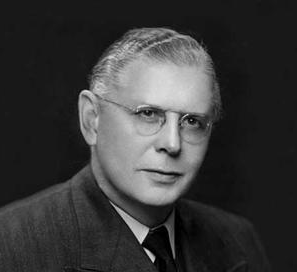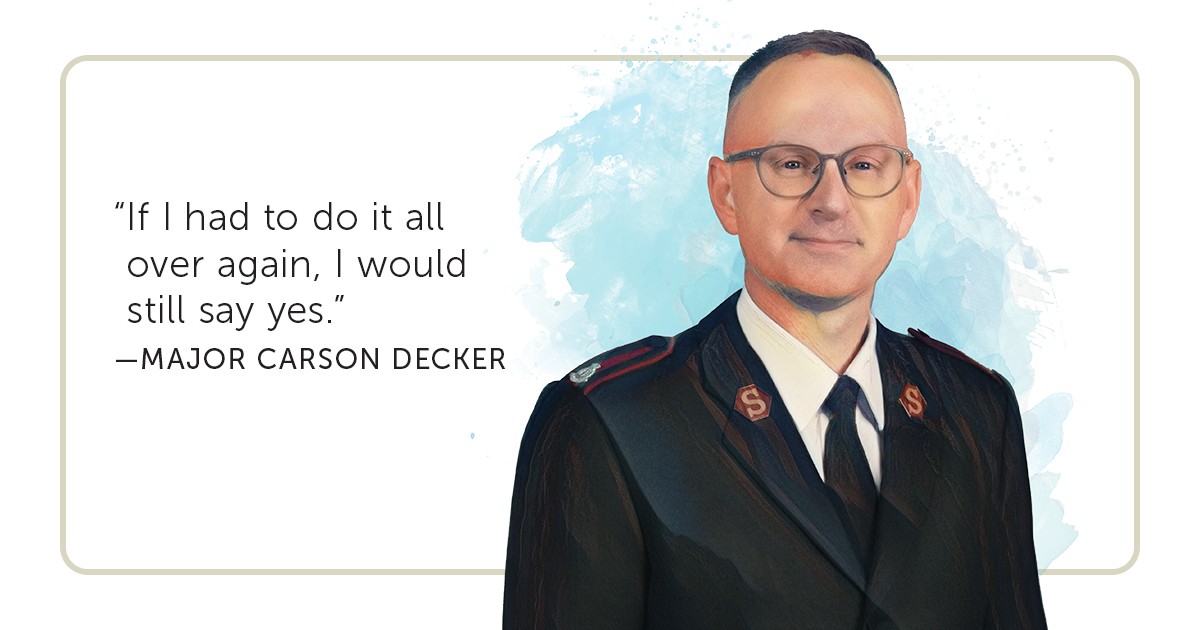 Two weeks ago, I was sitting in the chapel of the brand new Harbour Light Ministries in Toronto (see report). Having been a soldier of the corps from 2002-2005 when it was labouring under the challenge of operating in temporary facilities while the existing building was torn down to make way for the present one, and having also been aware of the woefully inadequate facilities in which both the corps and addictions centre had operated in the years preceding, it was a joy for me to be able to sit in such a lovely facility.
Two weeks ago, I was sitting in the chapel of the brand new Harbour Light Ministries in Toronto (see report). Having been a soldier of the corps from 2002-2005 when it was labouring under the challenge of operating in temporary facilities while the existing building was torn down to make way for the present one, and having also been aware of the woefully inadequate facilities in which both the corps and addictions centre had operated in the years preceding, it was a joy for me to be able to sit in such a lovely facility.
Even to my untrained senses the aesthetics of the chapel were pleasing. The outside had been drawn in via clear glass windows through which the greenery of leaves and grass could clearly be seen, and with the light wooden lattice adorning the walls.
It was a joy to hear such auspicious guests such as the Honourable Bob Rae and the Honourable George Smitherman speak so glowingly of the value of retaining the presence of Salvation Army ministry on that site. However, it was not any of these speeches that caused the shivers to run down my spine. Rather, it was the reference by Toronto City Councillor Kyle Rae to the foundation stone of the original building having been laid in 1961 by the then Premier of Ontario, the Honourable Leslie Frost.
I must confess that normally such a reference would have passed me by since, in 1961, I was still a teenager living in England, with little awareness or interest in the province of Ontario. But in recent days I had been delving into Salvation Army history and, in the process, the name Leslie Frost had come up.
In a few days time, the Orillia Corps, Ont., will be celebrating its 125th anniversary. I have been serving on the Celebration 125 committee, with particular responsibility for the Saturday evening program, when it is anticipated that former members of the corps, together with local townspeople, will come and join the celebrations.
The chair of the committee was anxious that while there should be some historical content, the evening should not dwell on the past but rather also look ahead to the future. Joyce, a fellow-dramatist and I, came up with the idea of linking together the various ingredients of the program with dramatic segments which would provide some Salvation Army history but would also celebrate the present and envision the future.
In the process of our research we came across the fact that the corps had been founded by a woman named Captain Maggie Barker. She had grown up in London, Ontario, and had been one of the early converts of Joe Ludgate and Jack Addie who, in 1882, pioneered the very first corps in Canada in London, Ontario. Just two years later, Maggie descended on Orillia.
I was chosen to play the part of Maggie, who would engage in conversation with Joyce, who really is a new convert and Kelly, a young teen. At one point in the script, Maggie says the following lines:
“I served here only briefly. It was common to move officers every couple of months to keep the planting fires burning. But I did return to Orillia when I married one of our town's future mayors, William Sword Frost, in 1890.”
But wait for what Maggie says next!
“We had three sons, one of whom, Leslie, went on to be a Premier of Ontario.”
Yes, the very same Leslie Frost who had laid the foundation stone of the 1961 Harbour Light building. No wonder I had shivers down my spine last Friday morning. I felt incredibly connected to three important pieces of Salvation Army history─one dating back to the origins of The salvation Army both in Canada and in the city of Orillia; another relating to a vital Salvation Army centre that was incredibly innovative when it first began; and a third to the wonderful new ministry opportunities afforded by the new Harbour Light Centre.
What a privilege will be mine to dare to become Captain Maggie Barker for a few short hours and, hopefully, with my fellow actors, to send a few shivers down the spines of others, too.
Photo: Leslie Miscampbell Frost, former Premier of Ontario
 Colonel Gwenyth Redhead is a retired Salvation Army officer. She and her husband, Robert, have held a wide variety of appointments in the United Kingdom, Canada and New Zealand. However, her passion has always been to encourage others in creative responses to God through writing of scripts, stories, articles and lyrics (mostly to Robert's music). She has two daughters, Joanne and Corinne, and rejoices that they, too, use the creativity God has given them in ministry.
Colonel Gwenyth Redhead is a retired Salvation Army officer. She and her husband, Robert, have held a wide variety of appointments in the United Kingdom, Canada and New Zealand. However, her passion has always been to encourage others in creative responses to God through writing of scripts, stories, articles and lyrics (mostly to Robert's music). She has two daughters, Joanne and Corinne, and rejoices that they, too, use the creativity God has given them in ministry.









Leave a Comment